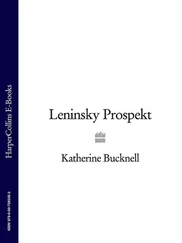Lawrence smiled and gave a little snort of pleasure. ‘There, you see – you grow all the time; nothing can stop you. Not even the safety of your happy marriage. You pull the sunlight to yourself, the nutrients, the H 2O. You don’t need to cast yourself out of the garden into a wilderness of error. Just keep painting. Can you? With Hilary up there?’
‘I can do – whatever I want. I’ve already told her I need to work. It’s not as if anyone has died – or – well … But she can deal with how we are. And she’s great with Will; she’ll help. She doesn’t have anything else to do.’
‘I’ve got to get the early bus to Oxford.’ Lawrence put down his book and reached for her, across her small back, around her smaller waist, a broad, familiar hand on her stomach, low down, the heel of his palm on her hip bone, his thumb edging into her belly button, pulling her towards him down into the depths of the mattress and the worn white sheets.
‘I’ve still got paint on my hands.’
‘I’ve been reading Petronius.’
Once again, they both laughed.
There was a knock at the bedroom door.
‘Will?’ they called together.
‘No. Sorry. Only Hilary.’ Her voice was husky. Husky with grief, but also because that was Hilary’s voice – big, rough, irresistible.
Gwen stood up and crossed noiselessly to the door, pulling her filmy white nightgown down around her knees.
‘I was thinking you might have a sleeping pill,’ came Hilary’s apology as the door swung open.
‘Poor Hil.’ Gwen reached up with her dirty, thin-fingered hand to the height of Hilary’s moon-white forehead, testing as if for a temperature. ‘I don’t know if we do, really. But let’s –’ She paused, feeling torn, stroked Hilary’s wobbly, near-black screws of hair back against her scalp and her ears, then, as the hair sprang free again, said, ‘C’mon. Lawrence has to get up early. Let’s go downstairs and look in the kitchen. Maybe we have some hippie tea. Or maybe – what about whiskey?’
The story of Hilary’s summer in London had rushed out chaotically at the big kitchen table in the basement when Hilary arrived from New York a few hours earlier. Now as Gwen turned on the lights at the bottom of the stairs and Hilary collapsed staring-eyed in a chair, it seemed to be still lying there in pieces which they could pick up and study. How did it all fit together? Did this piece interlock with that? Border or frame? Or endless, undifferentiated, disorienting sky?
The thing Hilary remembered most vividly from the last few months was eating lunch with Paul wherever they happened to be. It seemed as though they had eaten together every day that she had been in town. During the length of the mornings, working together, comparing this object with that one, discussing intrinsic qualities, history, whereabouts over the centuries and generations, the atmosphere between them would warm and thicken, a sense of anticipation would build up; they had to eat lunch, after all. It was unavoidable. He only suggested it once. After that, they repeated it by unspoken mutual agreement. They never made a reservation anywhere. Most of the cafés and sandwich shops they ate in were too simple for that, and making a reservation might have seemed to both of them to be too deliberate, like a date. It was as if, Hilary later reflected, they preferred to believe they ate together only because they had nothing better to do. And yet they seemed to go to lunch a little earlier each day, anxious to be sure there would be a table.
At the British Museum, for instance, they would desert the racks of antiquities and burst into the great, glass-ceilinged courtyard like travellers hurrying through a station for a train. Over their catalogues, over their notes, over their slides, they were reticent and businesslike; but in the bustle and clatter of that vast open space, they were relieved of self-consciousness and the excess of professional concentration that they practised in private. Among thick-shod tourists slung with umbrellas, cameras, guidebooks, parties of schoolchildren in windcheaters and knapsacks, squalling infants rolled along in their padded chair-worlds, they made a pair: experts from behind the scenes, carrying no luggage with them except what was inside their heads. The limestone facades, the wide, shallow stairs spiralling around the dome of Panizzi’s reading room, the summer sky dimmed by luminous clouds and marked out by steel struts in hundreds of triangular pieces like a pale grey parterre, offered a monumental stadium for their quiet focus upon one another.
Hilary afterwards thought that this particular setting, with its combination of neoclassical beauty and ultra-modern engineering – the worship of the old enshrined in the temple of the new – epitomised the kind of magic that bewitched her that summer. It seemed to sum up the whole effect on her of England: historical riches set off by soaring technical dazzle, a technical dazzle which she associated with America and which made her feel that she had been somehow misinformed. England – Europe – had gone on ahead into a future she didn’t recognise, couldn’t have predicted, and might not be able to keep up with. What rules were they playing by, she wondered, the members of this old culture, over which she had been taught, or had always assumed anyway, that the New World had some kind of natural, permanent, unbeatable advantage? How it all took her by surprise.
Hilary and Paul never spent much time studying a menu; it seemed to be of no interest to either what they ate. The first item listed would often be the one chosen by Paul, then Hilary might say, ‘I’ll have the same,’ handing the menu back unopened. Or, if it was a cafeteria, each might grab the first plate on the shelf. But after every lunch, they would sit over coffee upon coffee – cap-puccinos, double espressos, filters, cafetières, lattes – until they were shaking with it. Just to avoid leaving the table.
In the end it was all about being at the table, facing each other, with nothing in between them except what they might be about to eat or drink. In the Sotheby’s café in New Bond Street, where they lunched on the occasional days when Hilary borrowed a desk to go through the old sale archives and to be in touch with New York, she liked the last seat on the slippery, well-padded brown leather banquette, in the corner, the back of her head against the mirror; they could both see what was coming, Paul by looking right past her into the mirror. This arrangement, too, was like part of a journey, two travellers in a compartment on board a train and the world flashing by. This was the table, private but not solitary, at which she first began to tell Paul about her engagement.
There seemed no reason not to. She was only in London temporarily; it was a moment out of time, out of her real life, and Paul seemed to be the most understanding, the least judgemental of people. He didn’t know any of her New York friends. Who would he gossip to? It was a strangely exhilarating opportunity, something she couldn’t have planned or foreseen – spontaneous, like their friendship. She had scarcely realised how small her circle of New York friends had become, nor how narrow her life was, how regimented by her work. But here in London, virtually alone, she felt free. His probings were delicate but surprisingly searching; she understood his curiosity as a form of commitment to their friendship. He seemed to concern himself more with her each time they lunched. She kept back almost nothing.
‘Your fiancé was Edward Doro’s lawyer?’
‘He still is.’
‘Was that because of you?’
‘Because of me?’ She felt on the spot, pink under Paul’s gaze.
He dropped his eyes to his plate, cleared his throat, hesitated. ‘Well, I mean – did you introduce them to each other?’
Читать дальше












